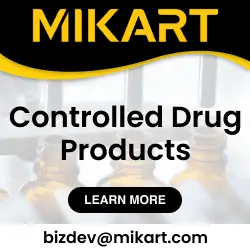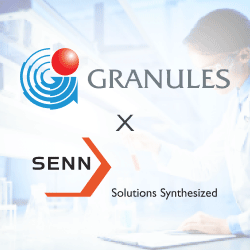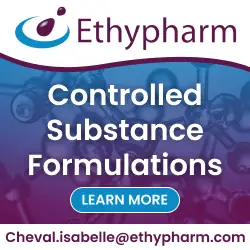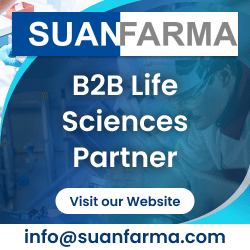Overview of controlled substance formulations & more on CDMOs offering controlled substance formulation development services for drug products
Q1. What is a controlled drug product?
A controlled drug product is a dosage form containing a controlled substance as an active pharmaceutical ingredient (API). Controlled substance is a chemical substance whose manufacture, possession, or use is regulated by a government, such as illicitly used drugs or prescription medications that are designated by law.
The Controlled Substances Act (CSA) in the U.S. is a federal regulation designed to prevent the diversion of certain potentially harmful substances for illegal use. To purchase controlled substances active pharmaceutical ingredient (API) for the production of a controlled substance pharmaceutical formulation, the purchaser must provide the supplier with its DEA certificate and certificate of procurement quota. The control applies for the manufacture, usage, handling, storage and distribution of controlled substance pharmaceutical formulations. It provides an efficient way to help medical professionals, lawmakers, and other officials across the country assess the benefits and dangers of various drugs and medications.
Controlled substances include opioids, stimulants, depressants, hallucinogens, and anabolic steroids. However, as many controlled substances have continued medical use, access for patients in need is necessary. Controlled substances are classified into five different schedules. Each active pharmaceutical ingredient (API) is put into a specific schedule based on the following factors such as abuse potential, historical and current patterns of people abusing the drug, risk of users developing a dependence, etc.
Controlled substances are an important asset in the toolkit of a healthcare provider in any practice setting, chiefly because these medications act quickly and potently.The demand for controlled substance active pharmaceutical ingredients (APIs) has increased rapidly in recent years because these products have considerable potential to address unmet patient needs, particularly in therapeutic areas such as depression, PTSD, addiction and chronic pain management.
The development of existing controlled substance molecules in different dosages is boosting their demand in the prescription market.The market for the lawful use of controlled substances is in excess of $21 billion worldwide. Currently the U.S. is the largest segment, with an approximate 63% share of the global market for controlled drugs. Pharmaceutical companies that are interested in outsourcing DEA controlled substance manufacturing & development need a partner that is equipped to perform cGMP processes and several other levels of operational complexities.
There are a number of contract development and manufacturing organizations (CDMOs) that have in-depth understanding of the regulations, long-standing positive relationships with regulators, and a track record of successfully working with controlled substances that can accelerate early phase development and commercialization. Moreover, they may also offer integrated or stand alone services including pre-formulation services, analytical development services and formulation services for controlled substance formulations as well as controlled substance manufacturing & packaging, etc.
Q2. What makes controlled substance formulation a complex drug product?
Complex drug products are the dosage forms with complex active pharmaceutical ingredient (API), complex formulations, complex routes of administration, complex drug-device combination, complex physicochemical testing or any other product where complexity or uncertainty concerning the approval pathway. Complex drug products have been broadened to include dosage forms for one reason or another present an atypical challenge in either drug formulation development, manufacturing or administration.
Biologics exemplify one category of complex drugs, but there are also non biological complex drug products including sterile products (extended-release injectables), transdermals, metered dose inhalers and nanomedicines including emulsions, liposomes, polymeric microspheres iron-carbohydrate complexes, etc. In considering the above, complex drug products encompass a wide range of technologies including solubilization & bioavailability enhancement techniques and various pharmaceutical formulations containing controlled substances or highly potent active pharmaceutical ingredients (APIs). Nanotechnology provides a growing number of innovator-driven complex drug products.
Controlled substances such as opioids have high potential for addiction and it also requires strict documentation and interaction with the DEA. However, many of these controlled substance active pharmaceutical ingredients (API) are essential for treating conditions such as PTSD, addiction, depression, acute pain or CNS disorders.The controlled substance drug formulation is a type of complex drug product since controlled drugs come with increased risk profiles and require extra paperwork and enhanced containment.
Producing controlled substances drug formulation is really no different than producing them for other pharmaceutical formulations. All require cGMP facilities, equipment, expertise, and other infrastructure, but they can be more costly to produce and require extra control in terms of quality, authorizations, licenses, quotas, and levels of security. The mentioned attributes add extra layers of complexity both scientific and regulatory in controlled substance manufacturing & development.
Additionally, all facilities and personnel are subject to additional audits from the DEA to maintain licenses for the controlled substance manufacturing and packaging.Monitoring methods for the controlled substances must then be established, and actual handling of the controlled drugs may require specialized PPE and equipment, an isolator that separates the compound from the greater environment.
Employees involved in the controlled substance manufacturing and development are also subjected to regular scrutiny from the DEA, who can audit a facility and its operations at any point to maintain licenses for the drug product development of controlled substances along with their manufacture, storage and distribution.
Quality assurance is particularly important, and controlled substance drug product manufacturers must follow established and validated methods of preparation.
Contract development and manufacturing organizations (CDMOs) that may have experience and expertise in complex drug product development including controlled drug formulation development may offer controlled drug handling services, formulation services and controlled release drug formulation development services. In addition, these organizations may provide pre-formulation services, formulation development services for clinical trial materials which can ultimately accelerate drug development process from early phase development to clinical development and commercialization.
Q3. What are the different requirements to manufacture controlled substance formulations?
The manufacture of controlled drugs is a vital and necessary part of today’s pharmaceutical industry that looks set to grow substantially over the coming years. Requirements for the manufacture of controlled substances impact all aspects of drug development, manufacturing, and distribution. Especially, the number of authorisations, licenses, quotas, and levels of security used to prevent the diversion of controlled substances makes it challenging for manufacturers to work with these drugs.
A controlled substance drug product requires an appropriate set of stringent rules and regulations, which manufacturers and distributors alike must adhere to. These controls include environmental, laboratory, security, materials handling, and training. Due to its complexity, this work is increasingly outsourced to specialised contract development and manufacturing organization (CDMO), who become key partners in helping the pharmaceutical companies navigate the regulatory environment of controlled drugs during testing and commercialisation.
Different requirements to manufacture controlled substance drug products:
Environmental controls
In controlled substance manufacturing, diverse environment controls are required to grant compliance to GMP standards and support optimized product quality, especially in the strictly regulated clean room environment.There should be dedicated HVAC systems in development and production suites with single air pass and controls and cascading pressuring differentials between the labs and hallways to prevent cross-contamination. The entire goal is to maintain a safe, clean, sterile environment for controlled substance manufacturing and eliminate any possibility of contamination, while meeting pharma-specific regulations.
Laboratory controls
Laboratory control systems offers a variety of products and systems for the control and monitoring of critical environments for controlled substance manufacturing & packaging. Special laboratory equipment must be properly isolated and cleaned.
Material handling controls
Material handling is an integral part of the controlled substance drug product manufacturing. The protection, movement, control of materials, and end products throughout the process of controlled substance manufacturing, disposal, distribution, and storage comes under material handling. It also includes inventory management, control and disposal, special handling requirements such as packaging and shipping, etc.
Training
All laboratory staff must undergo a rigid training program covering the regulations that govern the handling of controlled drug products in addition to good manufacturing practice (cGMP) training. All receiving and shipping staff are rigorously trained on handling controlled substances and hazardous materials
Documentation
Controlled substance formulations require specialized documentation from development and manufacturing all up to their distribution. The documentation must be completed, submitted, and filed surrounding the development, manufacturing, receiving, and shipping of controlled substance drug products.
Q4. Which are the leading pharmaceutical companies offering controlled substance formulation development services?
Various pharmaceutical organizations, such as a contract development and manufacturing organization (CDMO) and contract manufacturing organization (CMOs), equipped with controlled substance manufacturing & development capabilities, can offer end-to-end formulation development services ranging from early phase development to pre-formulation services and clinical development service upto commercialization.
These leading organizations may have several years of experience in controlled drug product development, controlled substance manufacturing & packaging for DEA Substances. Some of the top contract development and manufacturing organizations (CDMOs) with controlled formulation service capabilities for clinical development and commercialization are mentioned below.
Mikart- Controlled substance formulation development services
Mikart acts as CDMO for formulation development services. They have experience in the formulation development of solid oral dosage forms and a broad range of other drug products containing DEA controlled substances.
Pfizer CentreOne- Controlled substance formulation development
Pfizer CentreOne offers controlled substances (II-IV) pharmaceutical formulation development services for solid oral dosage forms & sterile injectables from clinical trials to commercialization.
Curia- Controlled substance drug product development service
Curia's Glasgow site is equipped with a dedicated cytotoxic suite & offers development services for a variety of compound categories, such as small and large molecules and controlled substances. They have the capability to conduct route scouting, rapid process development, optimization of reaction conditions for scale-up of materials for preclinical trials, and clinical trials along with analytical development services. Hence it acts as CDMO for formulation development services.
TriRx pharmaceutical services- Controlled substance formulation development
TriRx is a CDMO offering formulation development services for handling controlled substance manufacturing & development (CII – CV). It also offers controlled drug handling services
along with controlled substance manufacturing & packaging services.
Bora Pharmaceuticals- Controlled substance formulation services
Bora is a CDMO for formulation development of a variety of oral solid, semi-solid & liquid dosage forms, large-scale solvent processing (ethanol, acetone & isopropyl alcohol) & the management of controlled substances. It offers analytical development services, formulation development of solid oral dosage forms, controlled release drug formulation and acts as a leading global provider of drug product manufacturing and formulation services.
Recro- Controlled substance formulation development services
Recro offers controlled drug handling services including drug formulation development of quality products such as DEA controlled substances. It also provides formulation development of solid oral dosage forms and controlled release drug formulations.
All Suppliers












 As a CDMO, Mikart offers integrated CDMO services for Solid Dose & Non-sterile Liquid formulations.
As a CDMO, Mikart offers integrated CDMO services for Solid Dose & Non-sterile Liquid formulations.













